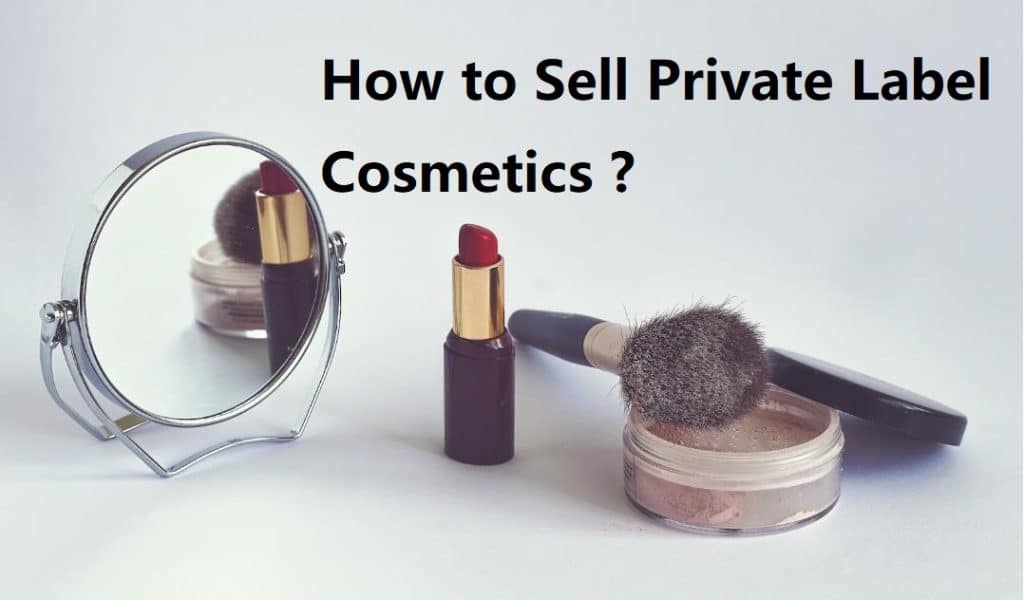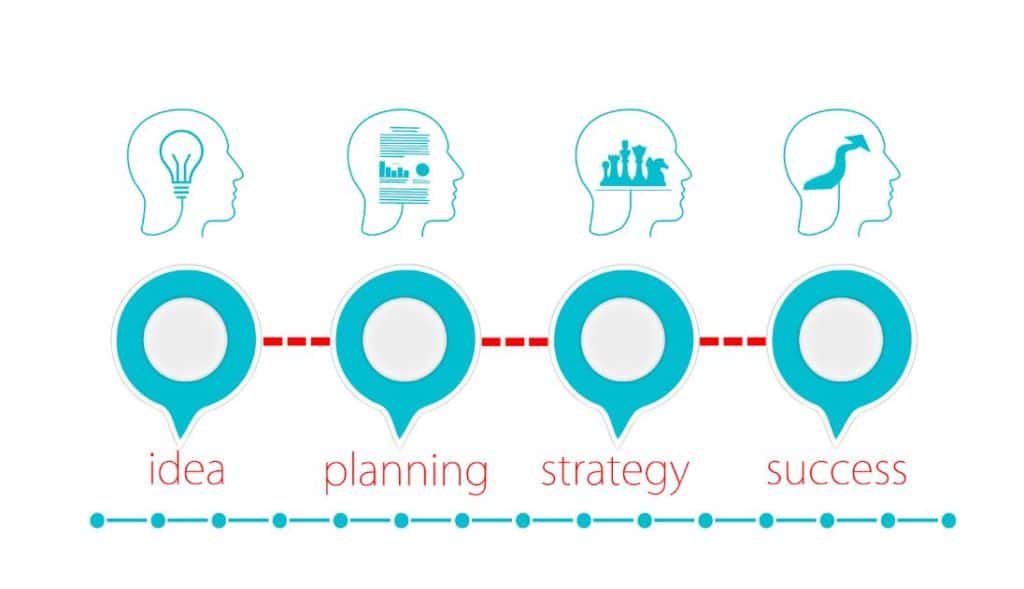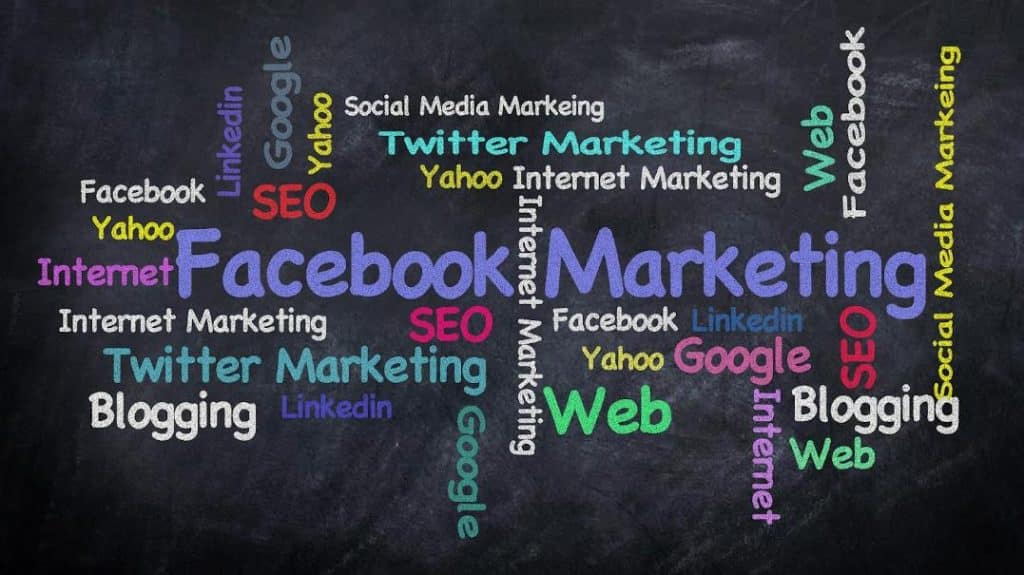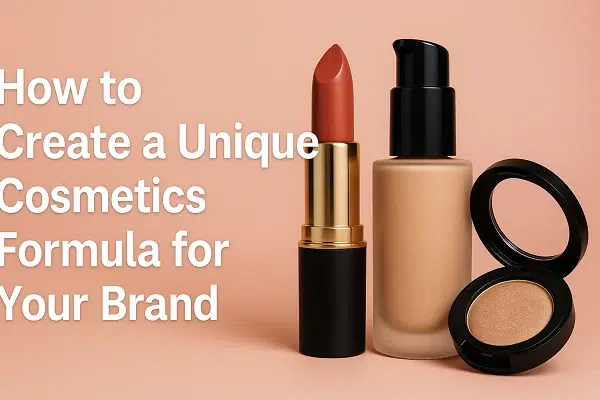
From what Private Label is and what it entails, to how to source the best products including makeup products, cruelty free products, and where and how to push your products… this article tells you everything you need to know about the Private Label model and Private Label cosmetics.
The cosmetics industry is one of the most valuable markets. It’s expected to grow at a CAGR of 6.85% every year, 2022 to 2026, with the US, the biggest consumer, averaging $18B in 2022 alone.
We’re always exploring the cosmetics field around the world, not just from the top level but also down to where opportunities are for the retail entrepreneurs. We can attest to a growing demand for cosmetics products across the world—which makes this industry a gold mine. However, to make a kill, you need good brand positioning strategies to differentiate your startup from competitors. You also need to stage a successful marketing campaign.
Table of Contents
The US generates the most revenue at $89.7B, followed by China’s $58.3B, then Japan, Brazil, Germany, the UK and others—all bringing in over $11.4B. Numbers don’t lie and this is not bad, is it? The big question is how to tap into this multi-billion industry.
But of course, this goes hand in hand with selecting the best quality products and choosing the best private label manufacturer. Here are some of the things you need to know like the back of your hand:
What You Need To Know
|
How to Start a Profitable Private Label Startup
If you’re scratching your head about being able to get your shop in on this action and pushing your products as a beauty entrepreneur… here are the easy steps you need to take:
- Find your niche market
- Choose the best private label cosmetics manufacturer
- Order cosmetics samples
- Create a stunning user-friendly website for your beauty supply shop
- Set up your online store
- Add products to your online store
- Launch your online store
- Promote your products and online store
What a Private Label Company Business Model is and How it Works for Cosmetics

Private label business model is branding products from a private label cosmetics manufacturer by affixing your own branding to already manufactured cosmetics products. As a beauty line owner or cosmetics business owner, you choose a set of products or custom order, then name and design them as you wish, complete with your preferred package.
Private label cosmetics is a great way to start. Not so long ago, we knew little about branded products but as time went by and demand necessitated thinking outside the box, the PL model was born. Today, even the biggest companies use private labels.
The PL industry is growing rapidly thanks to social networking platforms and influencers. The same goes with private label cosmetics, which is a game changer in the cosmetic industry.
There’s a boom. Suppliers and manufacturers are reaping big from having more businesses buying and those on the retail end are making huge profits dealing in top quality off-the-shelf products under their brand.
Users of the products also have more places to buy from and more products to choose from especially if they’re keen on handling cruelty free products.
It’s easy to start a private label cosmetics line. It involves a straightforward 4-step process, from sampling to placing your order through to packaging and delivery…
STEP 1:Request for samples
If you’ve identified a manufacturer you’d like to partner with, the next step is to interact with the product samples. You want to be sure about the formula, color ranges, texture, consistency, quality, and packaging. This is vital if you deal in makeup products and are a new brand. Trying on the samples will help you create a unique and perfect collection.
STEP 2:Choose colors and packaging
Select colors from the manufacturer’s or supplier’s catalog—eyeshadows, lipsticks, and choose the perfect palettes for your private label makeup brand. If you’re not sure, a supportive manufacturer will help you with the color scheme.
STEP 3:Settle on a design
You can always work on your own design if you like, but most manufacturers have an in-house design team that works with brand owners to create catchy bespoke designs and logos to brand packaging if you don’t have an existing business. Prototyping is optional to choose.
STEP 4:Production and delivery
After confirming the design, the supplier will take over, to complete the production and delivery. If you made the right choice, you’re guaranteed good quality products, all produced under cruelty free circumstances and conditions.
How to Set up an Online Cosmetics Shop
Online cosmetics products business is booming, and the good news is: you don’t need to have a big brand to get a slice of this multi-billion dollar industry. Small companies with a focus on a range of quality products are quickly accounting for manufacturers’ clientele.
PL cosmetics entrepreneurs are many and are an important link between the manufacturers and the consumers in the beauty industry.
There are various places and ways to push your products online, including:
- Social media – Instagram, Facebook, TikTok shop, etc
- Online store on Shopify and such platforms
- Third-party marketplaces – eBay and Amazon
- Own beauty website
- Twitter shop
- Niche marketplaces – Mercari, Poshmark, etc
Here are 5 easy steps for setting up an online shop…
STEP 1: Create your online store
You need three things to set up an online store: a business name, a logo to represent your brand and brand colors. Some platforms like Shopify help with these—they have a lot of useful information that you can access for free. It’s a good place to start your research if you need advice on how to choose a business name, what you need to include in your logo, and what different colors represent.
STEP 2: Set up your product pages
What are you offering? Display your cosmetics collections in stunning photos. You don’t need to buy an expensive DSLR camera to achieve the top quality photos you see out there. A smartphone with a good camera and continuous lighting from fluorescent mercury vapor tubes or LED video lights will do. Couple your photos with perfect descriptions and then move to step three.
STEP 3: Decide on the sales channels or apps you want to use to push your products
There are many options, and tools for this that’ll help you reach your target. It takes time to know which one works best for you but it’s always a good idea to start with familiar grounds before trying to conquer new grounds. You’ll learn a few things along the way. Still, while you’re at it, try the others and find ways to grow your reach and popularize your brand.
For example, look for apps that can help you push your cosmetics products on different channels—Amazon, eBay, help you run your online campaigns, etc. there’s a plethora of tools you can use to run a successful online business. The good news is: most of them are free!
STEP 4: Choose your payment gateway
How do you want to be paid? You’re the boss—you decide. There are many options out there but you need to be careful to strike a good balance between having a payment gateway that’s convenient to your buyers and being safe. Some platforms have secure checkout in place, which takes one thing off of your plate.
Paypal is one of the leading payment gateway options. Others include Worldpay, Amazon Payments, Authorize.net and many others. Choose the most reliable and secure payment gateway, but be sure to read up on its pros and cons to know what you’re getting yourself into.
In China, over 80% of transactions are made possible by AliPay, followed by China UnionPay, and WeChat Pay.
STEP 5: Launch your marketing campaign for the cosmetics store
Get the word out there about your top quality products by implementing the best marketing strategies for your online shop. From building your social media presence to growing your following, running social media campaigns, and more.
How to Launch a Private Label Brand
In the U.S., one of the leading private-label markets in the world, sales hit $199 billion in 2021 alone and that was before the year ended. Obviously, it was higher in 2022 based on statistics provided by Private Label Manufacturers Association (PLMA). The same goes for Germany, according to Statista and other big PL markets. While this is for the general private label products, it still tells you that PL is the way to go.
It takes some planning to launch a successful private label brand. One of the most important things that you need to pay attention to is choosing your branding and product packaging design. Good branding will help you in three ways:
- Help your product stand out on the shelves
- Position you well among top competitors
- Encourage brand awareness
The first step is ensuring you choose a brand name that’s available to avoid sharing a name with another private label cosmetics company. Your name also needs to be easy to remember. It’s also important to ensure it resonates with your target audience.
After doing that, research your competitors. How do they package and present their products?
How do you want to differentiate your brand from your competitors? You can work with your PL supplier’s graphic designer to create a logo but the more flexible ones will allow you to go to a professional graphic designer of your choice and have them create a logo for your startup. You also want packaging designs that align with how you want buyers to see your brand.
How to Sell Private Label Cosmetics Online

Search on the Internet
There’s a ton of information on the internet about the PL beauty market. There are expert answers to your questions. From discovering new trends to learning about lesser-known cosmetic markets that weren’t on your radar, you can stay ahead of the competition by being up to date. Make Google your friend.
Attend Trade Shows
Attending industry trade shows is a fun way to get great insights about the cosmetics industry to make your brand stand out. Attending such events gives you the opportunity to experience various companies’ cultures, to build relationships, and even meet new clients. A popular event in the US, for example, is Cosmoprof North America, an annual event which takes place in Las Vegas. Other cosmetic shows include Premier Orlando and BeautyCon. In China, we have China International Beauty Expo (Guangzhou) and several other cosmetics trade shows. A simple search will bring you a ton of trade shows you can attend.
Check Online Reviews
Check out your competitors’ product reviews—fair and honest feedback from people who’ve interacted with the company. Go through the reviews to know what customers like about the company, the private label products, the company policies, and what they don’t like. Your competitors’ reviews will tell you what to avoid and help you know what to do to give your competitors a run for their money.
Request for product samples
A private label cosmetic products manufacturer will typically send samples of products on order. As a customer, once you’ve picked the most professional cosmetic company to partner with, get in touch with them and request for samples of all the products you’re interested in adding to your catalog. It’s important to be sure about quality and to physically interact with samples of every new product. It helps you select the right products to match your target’s needs and preferences.
The good thing is, some manufacturing companies give startups an easy way to buy sample kits. In the case of Aurora Global Brands, you can get a whole range of cosmetics products at the click of a button.
Factors to Consider when Choosing a Private Label Cosmetics Manufacturer
If your partner, a makeup company, is not suitable for the job, there’s a chance your startup will falter or worse, incur a loss. You need to do your due diligence. Many reputable companies with a proven record of high standard for their range of products and customer reviews to back it up. There are many qualities that you need to look for in a cosmetic supplier.
The important factors that you need to consider before making such important decisions as partnering with a PL company including:
- Government regulation and safety standards
- Specialty certifications
- Minimum Order Quantity (MOQ) that you need to order a range of beauty products
- The kind of support they give to the businesses they partner with
- The production process and methods – are they authorized, safe and cruelty free? Do they conduct strict quality control?
- Their type of branding for the beauty products – can it work for your logo design?
- Where they source ingredients and raw materials from and whether it’s cruelty free
- Available service levels
- Do they have affordable prices?
- Can you create your own logo and do your own branding?
- Formulations and custom blends
- How do they discontinue a product line?
How to Find a Good Private Label Cosmetics Company

There are many beauty companies to choose from, but only a few will be a perfect choice depending on what you need—personalized and PL products with minimal orders, vegan and cruelty free products, etc. Some manufacturers are keen on manufacturing products that are cruelty free and made from quality ingredients.
Sample orders will also help you ascertain this as you seek to familiarize with your products before taking a leap. If you have no clue what companies are worth trying out, it’d be a good idea to start by searching for specific PL cosmetic suppliers—with the things you consider important (or nonnegotiable). You’ll get many reputable, trusted suppliers to partner with.
Frequently Asked Questions: Start Selling Private Label Cosmetics
1. What are private label products in the cosmetics industry?
These are products that are produced and packaged by a cosmetics company and then branded under the name of a retail beauty brand or skincare line. The other term that’s closely related to PL is white label.
The difference between the two is that private labels not allow merchants to add their own branding but also make room for customization. White label products are generic and get sold to several retailers under their various companies and prices based on their niche. With PL products, you can get unique sets from the available collections. It’s less generic and easy to ensure are cruelty free.
2. How much does private label cosmetics cost?
Private brand cosmetic samples prices from one PL supplier to another. A complete product could cost between $1,500 and $5,000.
However, thanks to low minimum order, some companies will give you a complete starter sample pack for as low as $285, which is a good bargain for a sample pack that gives you a full set of eyeshadows in a VAC tray (16 duo-chrome eyeshadows and a whole 172 normal eyeshadows), 12 Colors from any lip products of the lip gloss line and, 4 shades of liquid foundation. All of which are on our product line.
Your location will also influence the cost. Up front prices are therefore different depending on the products being shipped, your location and the shipping mode.
3. Where is most makeup manufactured?
China is the world’s factory—it’s not only a manufacturing base for personal care products and cosmetics but also other products, whether they’re white label, PL, OEM or CM. Other skincare products and cosmetics manufacturing giants include France, the US (with California leading in the number of suppliers), Germany, UK, Ireland and others.
Statista report shows France is the leader in cosmetics exports based on the data they collected about major exporters of cosmetics worldwide, most privately branded beauty items in most of these countries are imported from other markets, especially China. That’s because products are substantially better priced in China than in France, the US and the UK. and, yes, the products are safe, cruelty free, and top quality.
4. How to start a PL business for cosmetics/ private label makeup line?
It’s common to find aspiring entrepreneurs asking, “How can I create my own brand?” The most popular steps for a successful PL startups are: conducting market research to establish what your users needs and how much they spend, making a business plan, searching a name, coming up with a logo, finding a manufacturer, sampling various low minimum order products, commissioning branding and designing of packaging for the products you like, shipping the products and popularizing your brand and products.
5. Which is the most common packaging description?
Different products have different options regarding packaging including plastic containers (the most commonly used), Polyethylene terephthalate (PET) bottles – mostly used for lip gloss and foundation, and tin and stainless steel which are considered eco-friendly packaging for some products. You can always discuss this with an account manager—they’re very helpful.
6. What are my options for private label printing?
Top private label manufacturing companies offer hot stamp printing and UV colorful print for their private label cosmetics. Again, you can always discuss this with an account manager because it varies from one company to another. You should however be careful to ensure the printing meets high standards. You don’t want inferior quality print cheapening your company.
7. What types of brands are most common and which works best with private label cosmetics?
There are many types, but only four are common: personal, service, corporate, and product. You can incorporate your private label cosmetics brand into any of the four.
Final thoughts…
It’s hard to choose the right company—one that understands your brand vision and has the quality products you need to guarantee breaking even with good sales.
As we’ve discussed in this article, you need to partner with a good manufacturer, ensure you’re getting cruelty free, top quality products, differentiate your brand—from competition right from having a unique logo to how you present, and most importantly… get buyers. This is a process. It starts from creating the product through to branding, packaging, and how you present the product to your target market.
At Aurora Global Brands, we work with our private label beauty startup customers, helping them from the moment they open an online account to order samples to when they make an order and even keep in contact after—to ensure they are able to push the products. We’re keen on supporting our startup partners because our success depends on their success, big or small.
We have an extensive library/ collection of cruelty free makeup shades and incredibly good formulations in trendsetting packaging. All the formulas used for all our products, including lipstick, skincare products, have a cruelty free formula free from paraben, lead and other harmful ingredients—which is an excellent start selling point for the enterprises we partner with.
Besides creating and offering an extensive range of cruelty free products to a customer, we ensure top quality customer service, support our partners, and remain reachable on our Help Center to answer your questions and offer you private label cosmetics solution. We don’t tire from answering all your questions and sharing useful insights. We want you to select and invest in the perfect product range. We’ll even help you create the designs and give you various packaging options, and share effective marketing strategies. Talk to us!
The Partner You Are Looking For
Aurora Global Cosmetics offers an array of amazing, cruelty free cosmetics products, striving to simplify entrepreneurial life by offering access to an array of products and services. We specialize in supplying customized formulations and provide containers and packaging services for the US, Canada, and products,the rest of the world.
If you don’t find what you’re looking for on our manufacturer’s product catalog, contact us and we’ll work with you to create a new product.
We’re extremely flexible in the manufacture of the cosmetics on our product portfolio. We believe in going an extra mile for our customers for continued, mutually beneficial business relationships.
We’ll be thrilled to hear from you if you’d like to outsource your OEM to us or to get your private label cosmetics brand up and running quickly.
Our experts are waiting to walk you through the requirements, and to discuss the prospects, and the steps you need to follow to achieve your goals faster.
What We Do
- CM of color cosmetics—which we do by developing cosmetics formulas, filling and packing.
- Private label makeup company with low MOQ and fast turnaround.
- Packaging and labeling – Filling the products in the packages (ours or yours).
Who We Work With
- Beauty Brand owners
- Beauty Shops/ Store owners
- Salon owners
- Makeup artists on a budget
- E-commerce owner/ Online shop owners
- Social media influencers
- Makeup schools
- Gift companies
- Entrepreneurs/ SMEs







